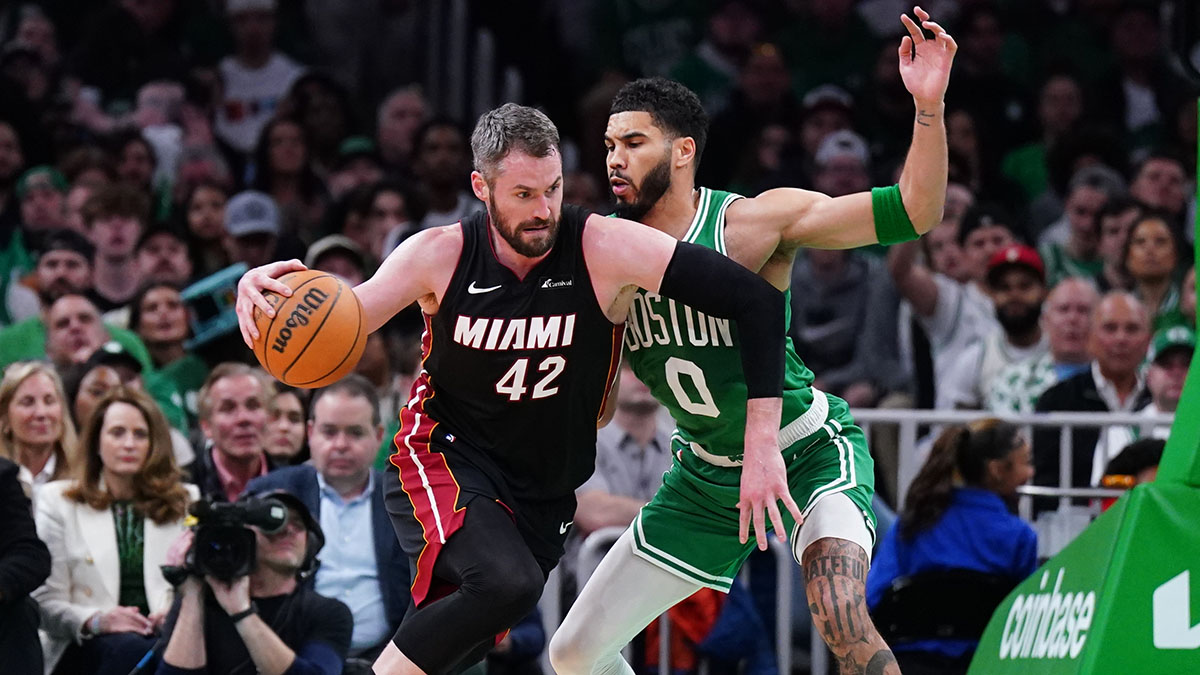Virtually no team skates its way to the Stanley Cup Final without at least a minor tweak to its roster at some point during the season.
The Boston Bruins have been no exception to this rule during their three runs this decade. The team hasn’t necessarily made blockbuster moves at the trade deadline to put itself in position to come out on top, but ex-General Manager Peter Chiarelli made four trades we’d quantify as "significant" back in 2011 and later 2013 that were designed to fortify a roster that was already championship caliber. Current GM Don Sweeney made two trades this past February with sights set on a deep postseason run.
Every trade, at least to date, has wound up being a net positive in some way, shape or form. Of course, some deals stand out above the others, while some carry some major baggage because of what the Bruins gave up – Cup victory or not. Here’s a refresher on how Boston has tinkered around the trade deadline en route to the Stanley Cup since 2011, with the deals ranked in reverse order of how well they helped the Bruins accomplish their goal.
6. Bruins acquire Tomas Kaberle from Toronto Maple Leafs for Joe Colborne, Boston’s 2011 first-round draft pick and Boston’s 2012 second-round draft pick on Feb. 18, 2011.
The Bruins won the Stanley Cup in 2011 in spite of their power play, not because of it. In 88 opportunities on the man advantage that postseason, the B’s scored just 10 goals – a horrible 11.4 percent success rate, 14th out of 16 teams in the Stanley Cup Playoffs that spring. Kaberle was brought over from the Leafs in part to fix those issues, and the unit actually got worse from the regular season, when it finished 20th in the NHL at 16.2 percent. A pretty far cry from the 34 percent rate the Bruins are scoring at in the postseason this year, no?
In 49 games with the Bruins between the regular and postseason, Kaberle had only one goal. Boston wound up winning the Cup anyway, and none of the assets given to Toronto turned into anything. Kaberle, who was 32 when he joined the Bruins, was out of the NHL two seasons later.
5. Bruins acquire Jaromir Jagr from Dallas Stars for Lane MacDermid, Cody Paine and Boston’s 2013 first-round draft pick on April 2, 2013.
How can you not love the Jagr? He was a focal point on a pair of Pittsburgh Penguins championship teams in 1991 and 1992, but didn’t get back to a Cup Final until 2013 with the Bruins – who swept his former team in the Eastern Conference final.
Jagr, 41 when he came to Boston, was hardly done as a productive NHL player; he went on to lead the New Jersey Devils in scoring the very next season with 24 goals and 43 assists for 67 points before going on to lead a Florida Panthers team that actually made the playoffs with 27-39—66 totals in 2016.
Local
In-depth news coverage of the Greater Boston Area.
Alas, he sure looked done with the Bruins. He failed to find the back of the net in 22 postseason games with the B’s, finishing with 10 assists during Boston’s run that came up short against the Chicago Blackhawks.
4. Bruins acquire Rich Peverley and Boris Valabik from Atlanta Thrashers for Blake Wheeler and Mark Stuart on Feb. 18, 2011.
Differentiating between Peverley and Boston’s other successful 2011 acquisition on this list was difficult, given the similarities in production between him and Chris Kelly. What swings this deal further down the list is what the Bruins gave up in Blake Wheeler, who’s gone on to become perhaps the best player on the Winnipeg Jets reincarnated.
It’s hard to fault Chiarelli too much for giving up on Wheeler at the time, of course. His talent in the offensive end was tantalizing at times, but at others, he unquestionably played soft in all three zones.
The Bruins have a Cup to show for the deal, but Wheeler has finished either first or second in scoring on the team in each of his full eight seasons with the Jets. He has the fourth-most assists in the league during his time in Winnipeg as well.
Peverley was also a throw-in as part of the Tyler Seguin trade to Dallas in 2013, but that can’t be held against him.
3. Bruins acquire Marcus Johansson from New Jersey Devils for Boston’s 2019 second-round draft pick and Boston’s 2020 second-round draft pick on Feb. 25, 2019.
Given his not-so-great history with Brad Marchand, as well as his many seasons with the perpetually underachieving Washington Capitals, it was easy to be skeptical of MoJo having too much of an impact on the Bruins this postseason – especially after he had only three points (1-2—3) in 10 regular season games following the deal, missing three weeks with a lung contusion in the process.
Similar to how Kelly and Peverley gave Boston a legitimate third line in 2011, Johansson, 28, has teamed with Charlie Coyle to be this generation’s sequel. Combined, Johansson and Coyle have 21 points to date this postseason; Kelly and Peverley had 25 points combined in ’11.
Johansson scored what amounted to the game-winner in Game 7 vs. Toronto in the first round and had another huge tally in Game 6 vs. Columbus in the second round, giving the Bruins a 2-0 lead in the third period of another closeout game. He’s an unrestricted free agent following the season and given the work Boston needs to do to retain several of its younger players, it’s unlikely Johansson is back for another run next spring. No matter, so long as the Bruins finish the job.
2. Bruins acquire Chris Kelly from Ottawa Senators for Boston’s 2011 second-round pick on Feb. 15, 2019.
Boston gave up virtually nothing for Kelly, who went on to wear an ‘A’ on his sweater by the end of his Bruins career.
Kelly had the best offensive season of his career as the Bruins defended their Cup title in 2011-12, scoring 20 goals for the only time in his career and adding 19 assists for 39 points. He even finished tied for third in the NHL that year in plus-minus at plus-33, a year in which it was all Boston in the top 5 (Patrice Bergeron, Tyler Seguin, Zdeno Chara and Brad Marchand rounded out the group).
He scored in overtime in Game 1 vs. the Washington Capitals the following postseason, supplying Boston its lone postseason bright spot the season in between Cup runs.
Kelly may have overstayed his welcome in Boston, part of rosters that missed the postseason in both 2014-15 and 2015-16 while not contributing a great deal, but that’s more on roster mismanagement. Chiarelli should have known when it was time to cut bait; Kelly did his job admirably between 2011 and ’13.
1. Bruins acquire Charlie Coyle from Minnesota Wild for Ryan Donato and a conditional draft pick on Feb. 20, 2019.
Bringing in Weymouth’s own didn’t come without its risks, particularly if Scituate’s own blossoms the same way Wheeler did once upon a time.
Right now, though, it’s hard not to love the impact Coyle has had on the Bruins. After spending 21 regular season games finding his footing with the B’s (2-4—6 totals), Coyle is having far and away the most productive playoffs of his career. He has 12 points (six goals, six assists) and has been a plus-9 for the Bruins in 17 postseason games, compared with 7-8—15 totals and a minus-17 rating over 44 career playoff games with Minnesota.
Two goals stand out for Coyle, both from the same game: his equalizer vs. Columbus at 15:25 of the third period in Game 1 to make it 2-2, followed by the game-winner 5:15 into overtime.
So, why else is Coyle at No. 1? For starters, he’s signed through next season, unlike Johansson. As a center, he carries more value to the organization given the ages of Patrice Bergeron and David Krejci – both are 33 – as a potential long-term solution. This is more of a big picture thought, but Krejci is signed through the end of the 2020-21 season, Bergeron the 2021-22. Could Coyle become an heir apparent up the middle for the Bruins in the top-six group?



